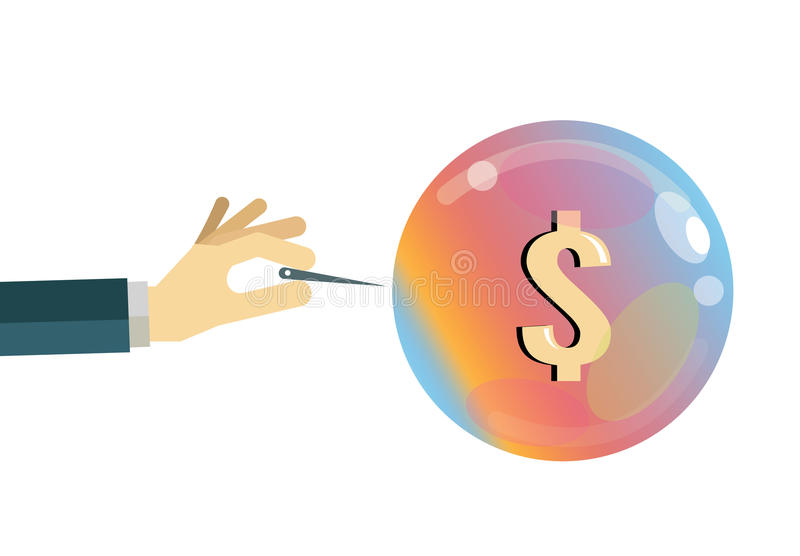
Although adding leverage to your portfolio may be a smart idea, there is a significant risk. Leverage is an important factor in futures trading, and you need to be aware of the risk and its impact on your portfolio. Trade with only the amount of risk capital you have. Do not trade with more than your portfolio can bear. Diversifying your portfolio is a smart move. You should also spread your investments over different assets and contracts.
Futures trading can be done on many commodities. They vary in value depending on demand and supply. If there is strong demand for a particular commodity it means that it is more likely to trade higher in the upcoming trading sessions. However, a high supply of a commodity could mean it will trade lower in coming months. Therefore, futures contracts are useful tools for hedging commodity price-fluctuation risks.

Futures contracts can trade on a variety underlying assets including energy and foreign currency. These are usually standardized contracts that have certain features. These features include an expiry time, a margin, as well as a standard underlying asset. There are four types of futures contracts: commodity, stock, currency pair, and index. A futures contract is a binding commitment to purchase a specified quantity of an asset on a certain date at a specific price. A futures contract is a derivative of a physical product, and it carries a high level of leverage. This leverage can increase the amount you are able to make or lose. You can trade futures for a fraction as much as the underlying asset.
There are two types: hedgers, and speculators. Hedgers are typically businesses while speculators trade commodities. Hedgers are interested in locking in favorable future trading price levels at the moment, while the speculators look to make money from futures contract price changes.
The market can be exploited by the speculator using a variety techniques. He may use leverage to magnify his or her gains, or he may use spreads, which are spreads of investments in multiple contracts with opposite positions. He could also use calendar Spreads, which are the simultaneous purchase or sale of two contracts. This type of strategy is similar to a stop order, and can be a great way to reduce the volatility of your futures position.

It's not always easy to purchase and sell futures. A trader must first decide how much to invest in his or her futures account. This is dependent on both the size of your account and the amount you have available to fund it. Also, the margin that you are willing to take on the contract will affect its price. In other words, you will need a certain percentage to cover the futures contract's worth.
FAQ
What are some advantages of owning stocks?
Stocks have a higher volatility than bonds. If a company goes under, its shares' value will drop dramatically.
But, shares will increase if the company grows.
To raise capital, companies often issue new shares. This allows investors to buy more shares in the company.
Companies use debt finance to borrow money. This allows them to get cheap credit that will allow them to grow faster.
If a company makes a great product, people will buy it. The stock price rises as the demand for it increases.
The stock price will continue to rise as long that the company continues to make products that people like.
Are stocks a marketable security?
Stock is an investment vehicle that allows you to buy company shares to make money. This can be done through a brokerage firm that helps you buy stocks and bonds.
You can also directly invest in individual stocks, or mutual funds. There are more than 50 000 mutual fund options.
The key difference between these methods is how you make money. With direct investment, you earn income from dividends paid by the company, while with stock trading, you actually trade stocks or bonds in order to profit.
Both of these cases are a purchase of ownership in a business. However, when you own a piece of a company, you become a shareholder and receive dividends based on how much the company earns.
Stock trading offers two options: you can short-sell (borrow) shares of stock to try and get a lower price or you can stay long-term with the shares in hopes that the value will increase.
There are three types for stock trades. They are called, put and exchange-traded. Call and put options let you buy or sell any stock at a predetermined price and within a prescribed time. Exchange-traded funds are similar to mutual funds except that instead of owning individual securities, ETFs track a basket of stocks.
Stock trading is very popular since it allows investors participate in the growth and management of companies without having to manage their day-today operations.
Stock trading is not easy. It requires careful planning and research. But it can yield great returns. To pursue this career, you will need to be familiar with the basics in finance, accounting, economics, and other financial concepts.
What is the main difference between the stock exchange and the securities marketplace?
The securities market refers to the entire set of companies listed on an exchange for trading shares. This includes stocks as well options, futures and other financial instruments. Stock markets are typically divided into primary and secondary categories. Stock markets are divided into two categories: primary and secondary. Secondary stock exchanges are smaller ones where investors can trade privately. These include OTC Bulletin Board Over-the-Counter and Pink Sheets as well as the Nasdaq smallCap Market.
Stock markets are important as they allow people to trade shares of businesses and buy or sell them. It is the share price that determines their value. A company issues new shares to the public whenever it goes public. These shares are issued to investors who receive dividends. Dividends are payments that a corporation makes to shareholders.
Stock markets serve not only as a place for buyers or sellers but also as a tool for corporate governance. The boards of directors overseeing management are elected by shareholders. Boards make sure managers follow ethical business practices. In the event that a board fails to carry out this function, government may intervene and replace the board.
What is the difference between non-marketable and marketable securities?
The key differences between the two are that non-marketable security have lower liquidity, lower trading volumes and higher transaction fees. Marketable securities, however, can be traded on an exchange and offer greater liquidity and trading volume. They also offer better price discovery mechanisms as they trade at all times. However, there are many exceptions to this rule. For instance, mutual funds may not be traded on public markets because they are only accessible to institutional investors.
Marketable securities are more risky than non-marketable securities. They have lower yields and need higher initial capital deposits. Marketable securities tend to be safer and easier than non-marketable securities.
A large corporation bond has a greater chance of being paid back than a smaller bond. The reason is that the former will likely have a strong financial position, while the latter may not.
Marketable securities are preferred by investment companies because they offer higher portfolio returns.
What is a Stock Exchange?
Companies sell shares of their company on a stock market. This allows investors to purchase shares in the company. The price of the share is set by the market. It usually depends on the amount of money people are willing and able to pay for the company.
Companies can also raise capital from investors through the stock exchange. Companies can get money from investors to grow. This is done by purchasing shares in the company. Companies use their money for expansion and funding of their projects.
A stock exchange can have many different types of shares. Some are known simply as ordinary shares. These shares are the most widely traded. Ordinary shares are bought and sold in the open market. Prices of shares are determined based on supply and demande.
Preferred shares and bonds are two types of shares. Preferred shares are given priority over other shares when dividends are paid. The bonds issued by the company are called debt securities and must be repaid.
Are bonds tradable?
Yes, they do! As shares, bonds can also be traded on exchanges. They have been trading on exchanges for years.
The main difference between them is that you cannot buy a bond directly from an issuer. A broker must buy them for you.
It is much easier to buy bonds because there are no intermediaries. This means you need to find someone willing and able to buy your bonds.
There are many kinds of bonds. There are many types of bonds. Some pay regular interest while others don't.
Some pay interest every quarter, while some pay it annually. These differences allow bonds to be easily compared.
Bonds are a great way to invest money. For example, if you invest PS10,000 in a savings account, you would earn 0.75% interest per year. You would earn 12.5% per annum if you put the same amount into a 10-year government bond.
If you were to put all of these investments into a portfolio, then the total return over ten years would be higher using the bond investment.
What is a Bond?
A bond agreement is a contract between two parties that allows money to be transferred for goods or services. It is also known simply as a contract.
A bond is usually written on paper and signed by both parties. The document contains details such as the date, amount owed, interest rate, etc.
The bond is used for risks such as the possibility of a business failing or someone breaking a promise.
Sometimes bonds can be used with other types loans like mortgages. This means that the borrower must pay back the loan plus any interest payments.
Bonds can also raise money to finance large projects like the building of bridges and roads or hospitals.
It becomes due once a bond matures. This means that the bond owner gets the principal amount plus any interest.
If a bond isn't paid back, the lender will lose its money.
Statistics
- The S&P 500 has grown about 10.5% per year since its establishment in the 1920s. (investopedia.com)
- "If all of your money's in one stock, you could potentially lose 50% of it overnight," Moore says. (nerdwallet.com)
- Our focus on Main Street investors reflects the fact that American households own $38 trillion worth of equities, more than 59 percent of the U.S. equity market either directly or indirectly through mutual funds, retirement accounts, and other investments. (sec.gov)
- Individuals with very limited financial experience are either terrified by horror stories of average investors losing 50% of their portfolio value or are beguiled by "hot tips" that bear the promise of huge rewards but seldom pay off. (investopedia.com)
External Links
How To
How can I invest my money in bonds?
An investment fund, also known as a bond, is required to be purchased. You will be paid back at regular intervals despite low interest rates. These interest rates can be repaid at regular intervals, which means you will make more money.
There are several ways to invest in bonds:
-
Directly buying individual bonds.
-
Buying shares of a bond fund.
-
Investing through a broker or bank
-
Investing via a financial institution
-
Investing through a Pension Plan
-
Invest directly with a stockbroker
-
Investing with a mutual funds
-
Investing with a unit trust
-
Investing through a life insurance policy.
-
Investing via a private equity fund
-
Investing using an index-linked funds
-
Investing in a hedge-fund.